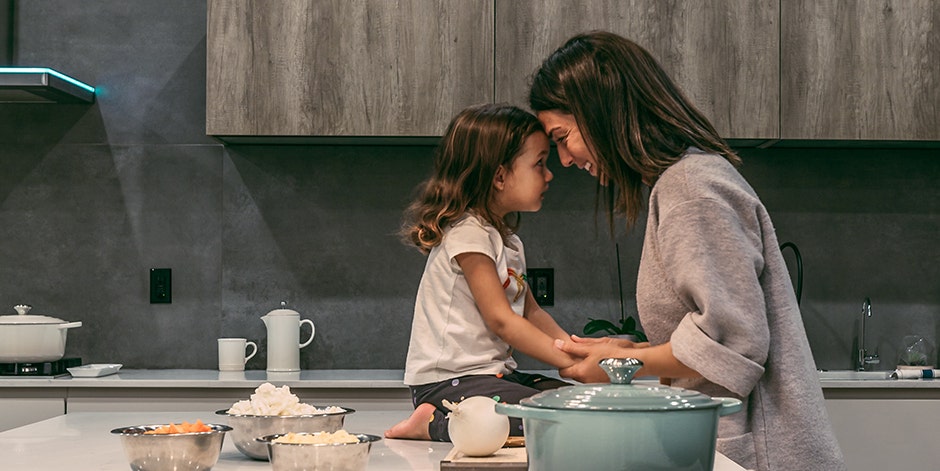The Risks And Benefits Of Being Your Child's Friend (And Where To Draw The Line)
Knowing how to be a good parent is never black and white.
 Rustic Vegan on Unsplash
Rustic Vegan on Unsplash The relationship between a parent and a child is one that has stood the test of time. But what’s the best way to raise your child? Should you be the disciplarian? Should you be feared as a parent? Or should parents be friends to their kids?
Anyone who has ever had children will probably give the same answer — there isn’t one way to raise kids right, as a parent. You do the best you can with what you know and hope for the best. And to an extent, that’s true, but it only goes so far. Whether you’re expecting, a new parent or an old one, you never stop caring for your child, so I want you to remember this: While your best may be limited, the capacity for knowledge and hope both are not. Never stop learning what it means to be a parent and always hope beyond hope that your child turns out to be a person you can be proud of.
So with that being said, there’s a debate that’s gone on for a long time about what "good parenting" should look like. Specifically, should you be more of a friend to your child, or should you be strictly a parent in a disciplinary role?
Some believe parents should be friends first.
If I had to choose a side, this would probably be the one. I like it mostly because it’s casual — it’s easier to get along with your parents when you don’t feel like you're suffocating under their restrictions. For the parent, they don’t have to worry about their kid growing to hate them or really having a rebellious phase. It’s all good, perfect harmony right? Well... not quite.
While this approach can work in a lot of different situations, there’s one major flaw. Freedom is good, but if America has taught the world anything, it’s that too much freedom can be a bad thing, too. Just as it goes for a country, the same holds true for a child. Ever hear the phrase, “give an inch, they’ll take a mile?”
Let’s say you allow your child to do as they please because you want to maintain the friendship level of the relationship. By giving them more freedom than they need as a child, it could lead to them constantly pushing the limits — not just yours, but society's as well. Without setting parental boundaries, children are at risk for making decisions for themselves that aren't age-appropriate.
Now, I’m not saying that you being friendly with your kid will turn them into a criminal. But lack of discipline could turn out to be a bad choice if not balanced with some sort of discipline and direction.
Others believe a parent's role is to be strictly the disciplinarian — not a friend.
Let’s look at the opposite end of the spectrum. If you fall under this category as a parent, you’re probably feeling pretty good about your methods after reading the previous section. You might be thinking “well at least my child won’t end up in jail.” I hate to break it to you, but your method could backfire, too.
Studies have shown that what’s known as authoritarian parenting can actually be detrimental to a child’s development. By raising them in this manner, you teach them how to bully and that power is always right. They also lean more toward anger and the rebellious phase will most likely hit at full throttle when it comes around.
Aside from those issues, there’s also the fact that the harsher you are on your child, the more likely they’ll be to cut all ties with you when they get the chance. I mean, think about it. Who would want to stay around someone who controls every aspect of their life? If you wouldn’t, what makes you think your kid would?
Being a parent can mean also being a supportive friend to your kids, too.
As you can see, one side is too lenient and the other not nearly enough. Just as in all things in life, for this relationship to work well, you need balance. No parent wants their child behind bars, but no parent also wants their kid to grow to hate them, either. The best way to avoid these two worst-case scenarios is to find some sort of middle ground.
Being a friend means hanging out with your child and taking an interest in what they like. It also means giving them some leeway and not hovering over them like a dark, controlling cloud. Be there for them when they’re down and encourage them when they need it. But remember to not be too soft, or be a pushover. There are times when a child needs a parent more than a friend, so you should be prepared to step into that role when the situation arises.
Being a parent means keeping your child’s best interests in mind. It also means telling them "no" when you should and giving them tough love when they need it. But you have to remember to not overstep. There’s a difference between parenting and being controlling. Allow your child to enjoy their life. After all, it is theirs — not yours.
There’s no way to keep both sides at half and half all the time. One side will always be more present than the other and that will flip-flop constantly. What matters is that you find a way to make it work for you. Do that, and you’ll enjoy plenty of fun-filled times with your child.
Jesse Oakley is a writer who writes about love, relationships, self-care and spirituality/astrology.

